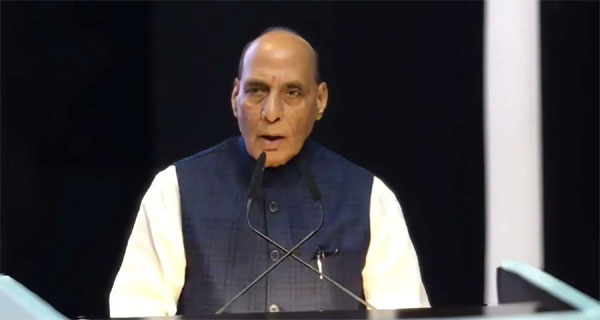Daijiworld Media Network - New Delhi
New Delhi, Oct 14: Defence minister Rajnath Singh on Tuesday delivered a strong message on the pressing need for structural reforms in the United Nations, declaring that the global institution in its current form is struggling with a “crisis of confidence.” Speaking at the United Nations Troop Contributing Countries (UNTCC) Chiefs’ Conclave, hosted by the Indian Army in New Delhi, Singh called for a reimagined multilateral framework that reflects today’s geopolitical and socio-economic realities.
“We cannot fight today’s challenges with outdated multilateral structures,” he said. “Without comprehensive reforms, the UN faces a crisis of confidence.”

He advocated for a reformed multilateralism—one that is inclusive, responsive to contemporary challenges, and focused on human welfare. India, as the largest historic contributor to UN peacekeeping missions, he said, holds both the experience and credibility to lead such efforts.
Singh also spotlighted India’s role in advancing modern, technology-driven peacekeeping. Under the Aatmanirbhar Bharat initiative, India has developed cost-effective, indigenous solutions for peacekeeping operations, ranging from UAVs and secure communications to mobility platforms and medical support systems—all designed to boost operational effectiveness in volatile regions.
Highlighting the pioneering role of Indian women in peacekeeping, Singh recalled India’s all-women Formed Police Unit in Liberia, deployed in 2007, as a global symbol of empowerment. Their professionalism, he noted, inspired a wave of local women to join Liberia’s national police. Today, Indian women officers continue to serve in critical missions across South Sudan, Golan Heights, and Lebanon, actively leading patrols, mentoring local communities, and setting benchmarks in inclusion and trust-building.
He also recognised the recent achievement of an Indian Army woman peacekeeper who was honoured with the UN Military Gender Advocate of the Year Award for her service in the Democratic Republic of Congo, underlining the growing importance of gender-inclusive peacekeeping.
Singh stressed that effective peacekeeping is not just about numbers, but about training, readiness, and inclusivity. India’s Centre for United Nations Peacekeeping (CUNPK) in New Delhi has trained participants from over 90 countries, offering immersive, scenario-based learning that includes simulated conflict negotiation, humanitarian response under duress, and civilian protection strategies.
Reiterating India’s longstanding call for a greater role for troop-contributing countries in shaping peacekeeping mandates, he said those who operate on the ground and face real-time risks must have a voice in the decision-making processes that govern their missions.
Peacekeeping, Singh emphasised, is inherently a collaborative mission—requiring coordinated action between troop-contributing nations, the UN Secretariat, host countries, and regional bodies. The UNTCC, he said, serves as a vital platform to deliberate on operational challenges, interoperability, inclusion in planning, and the role of technology and training in making peacekeeping more effective.
The conclave drew participation from over 30 countries, including Australia, Bangladesh, Brazil, Egypt, France, Ghana, Italy, Kenya, Nepal, Nigeria, Sri Lanka, and Vietnam, among others—signalling a shared commitment to advancing peace and stability through collective action.
According to the Ministry of Defence, the event reflects India’s unwavering dedication to global peace, cooperative security, and the evolving landscape of international peacekeeping.